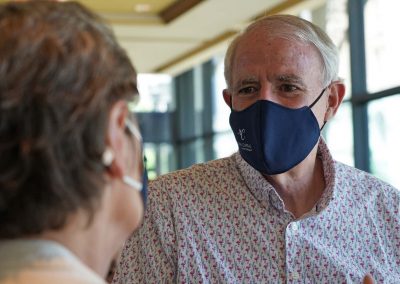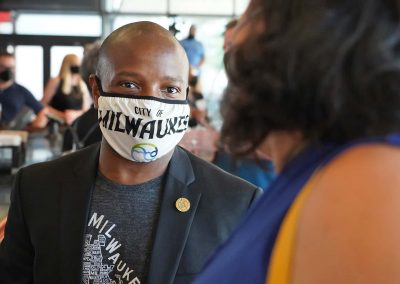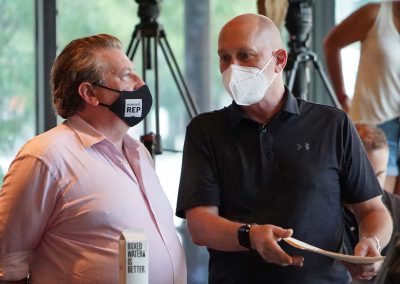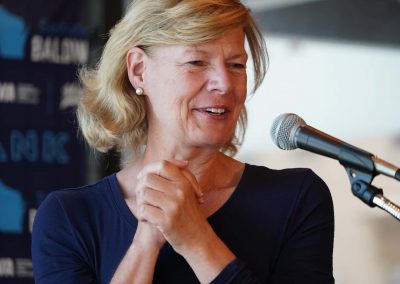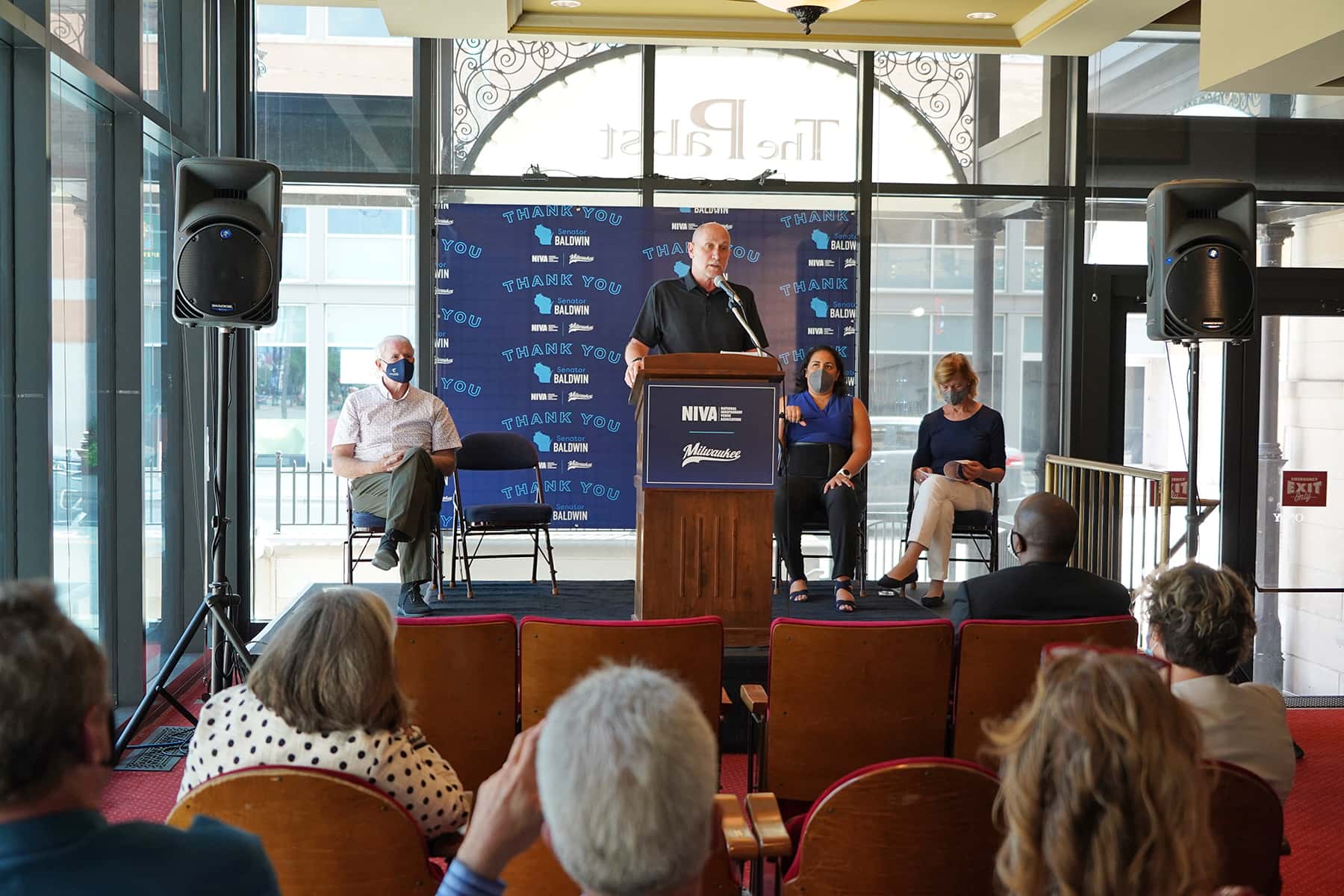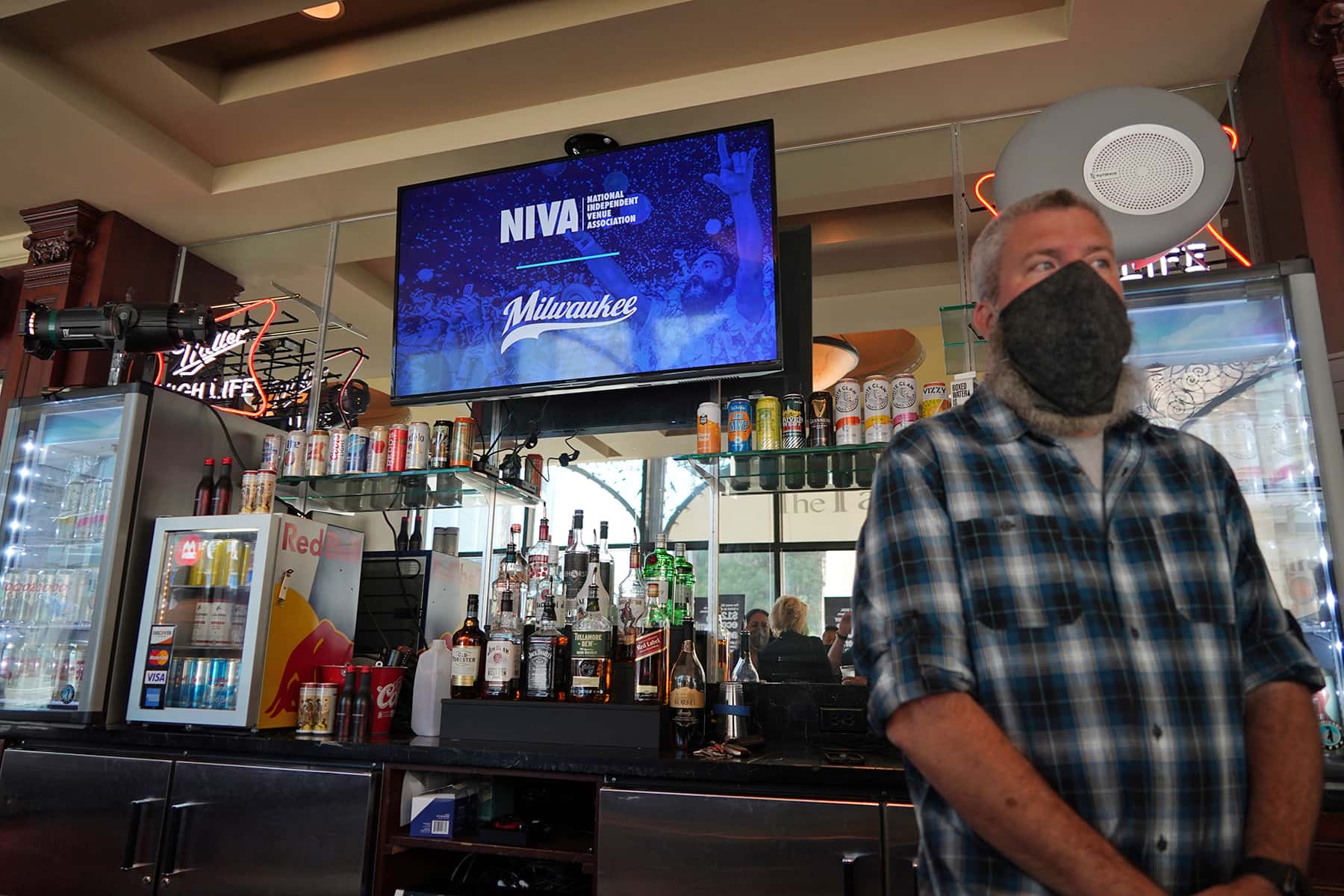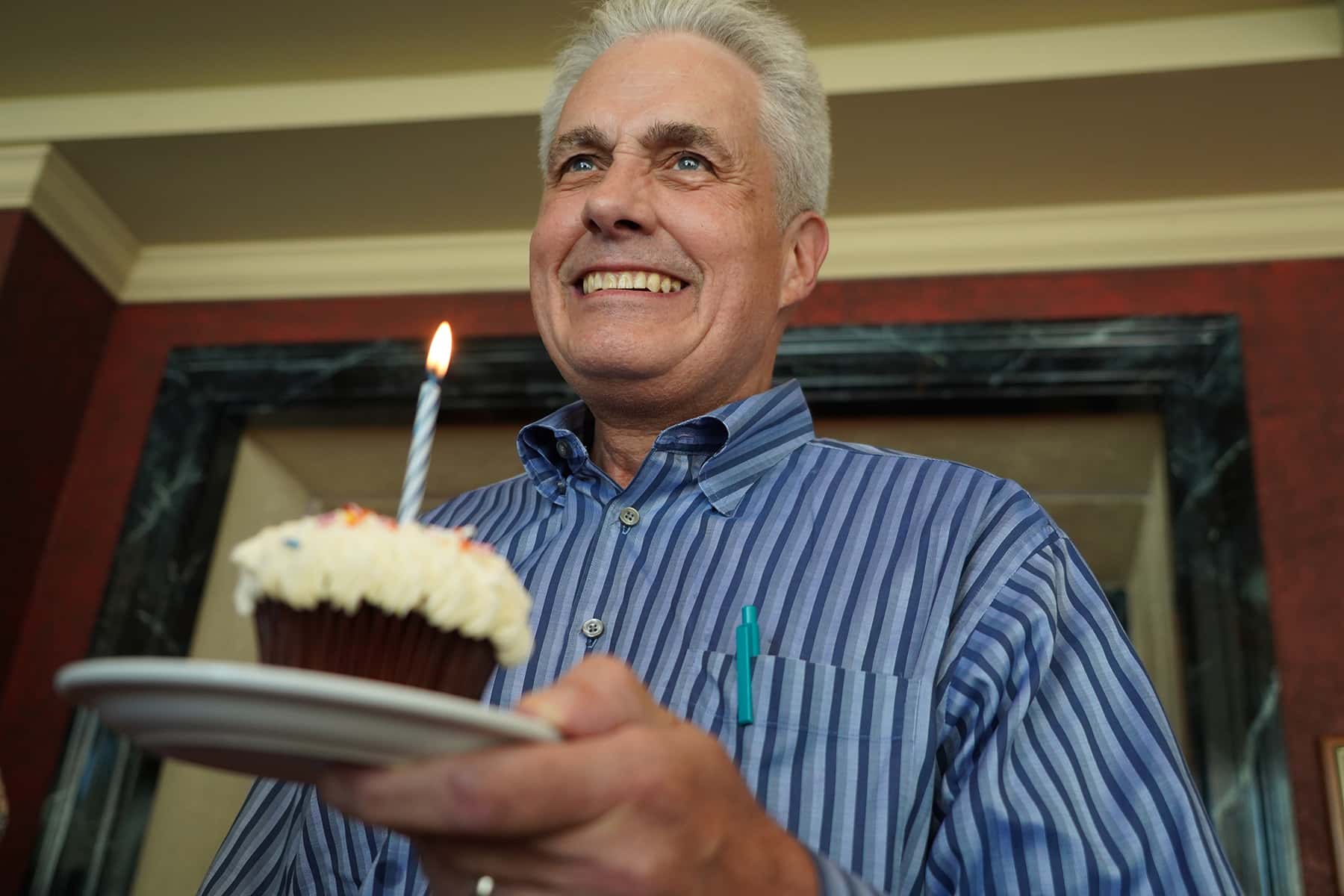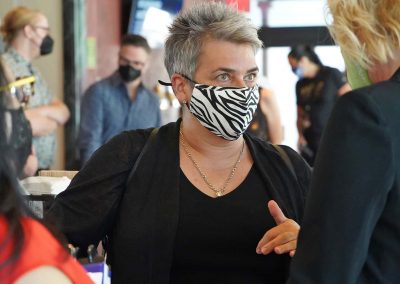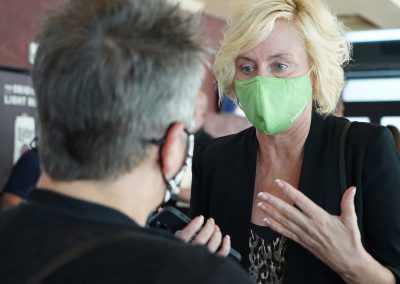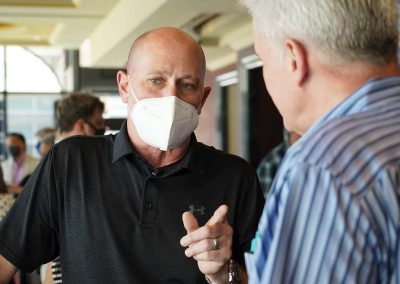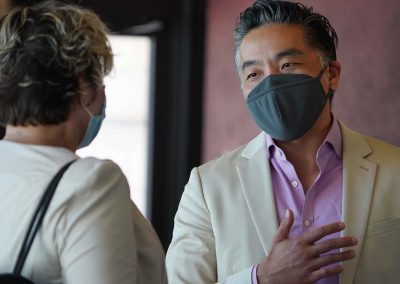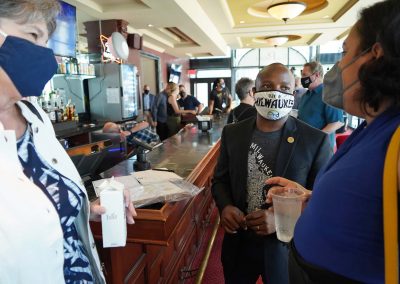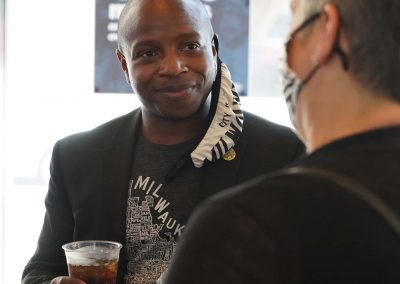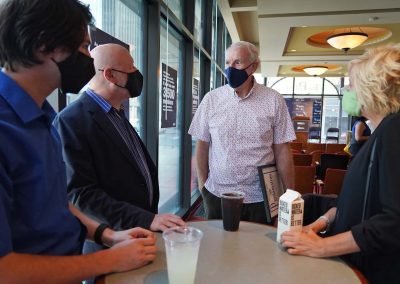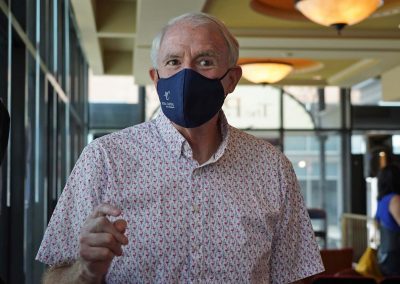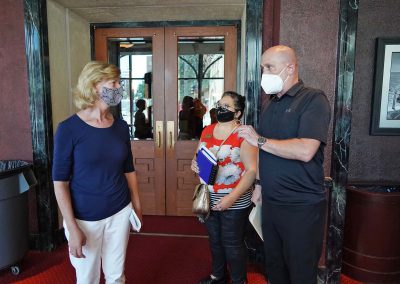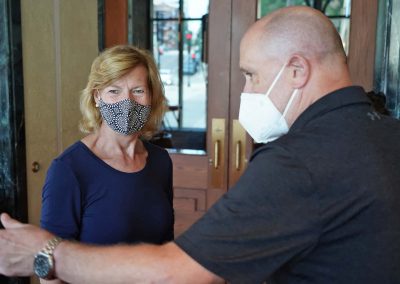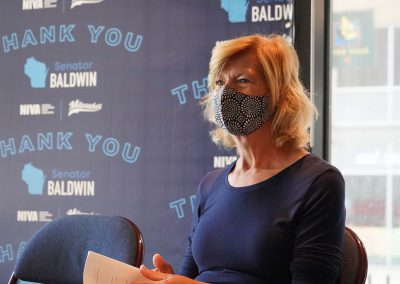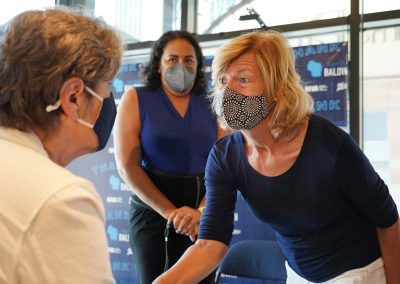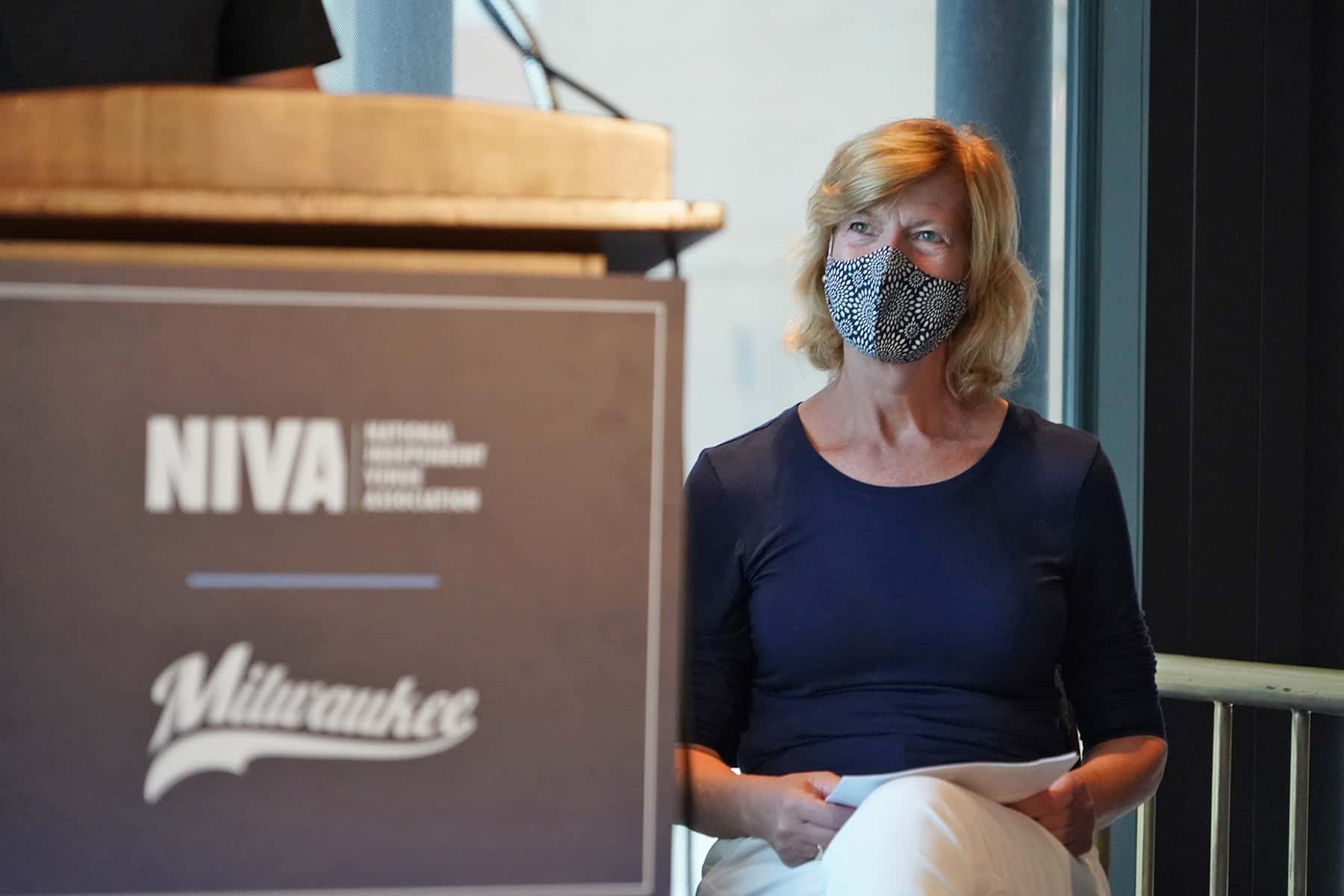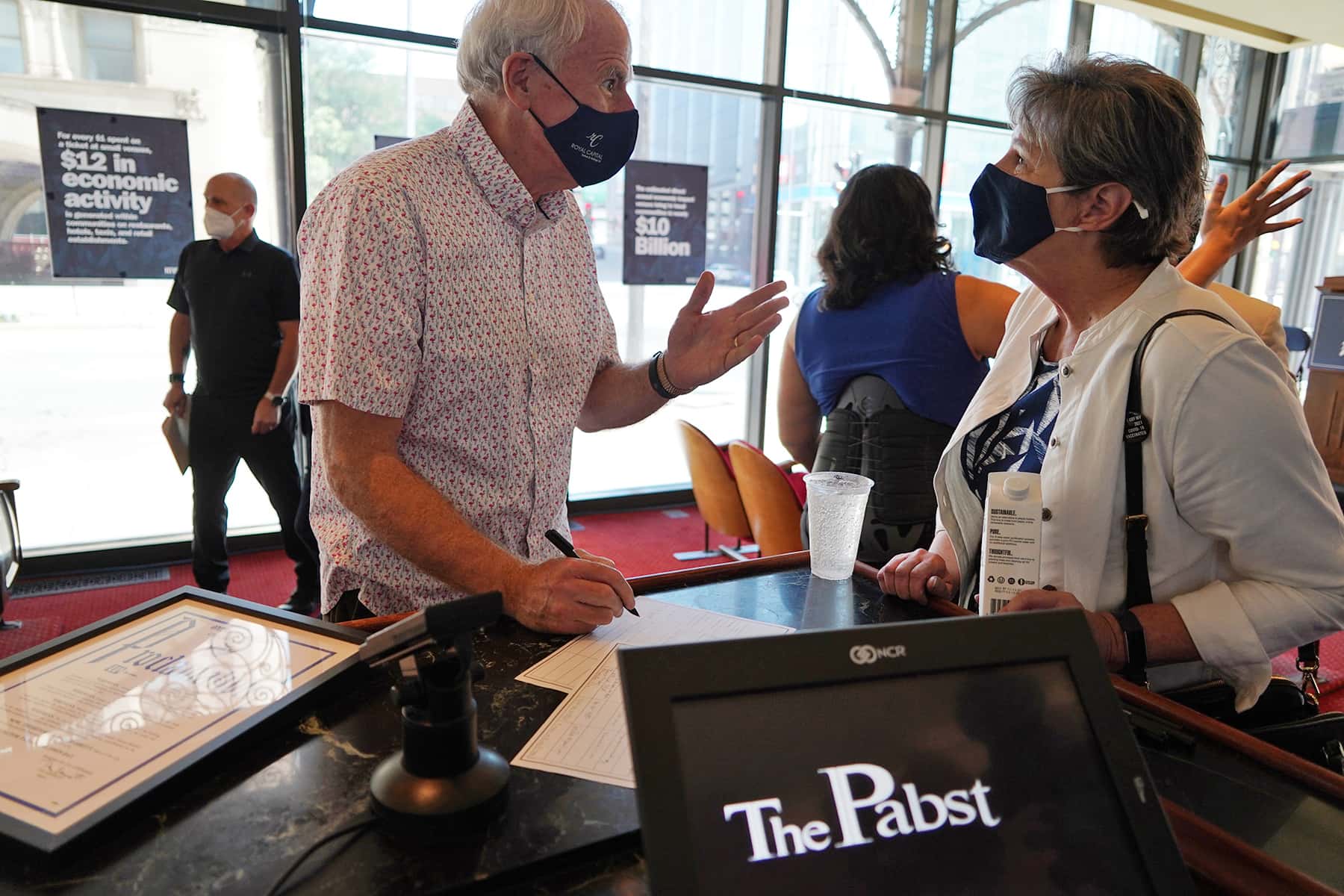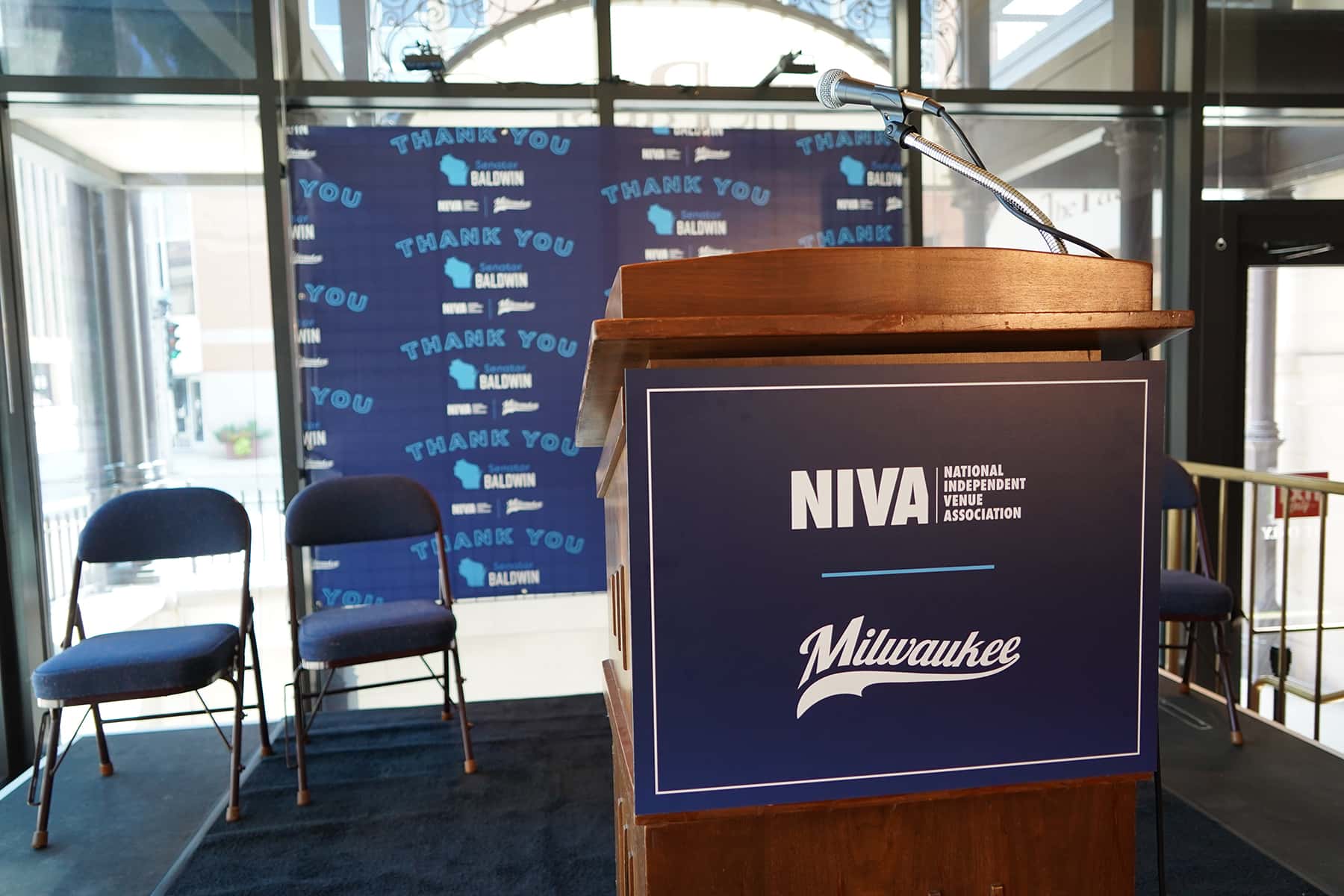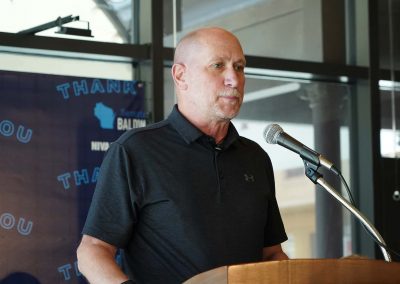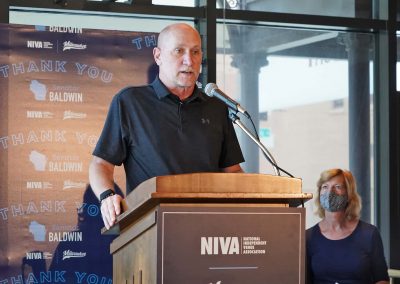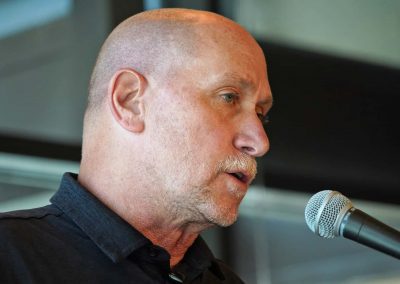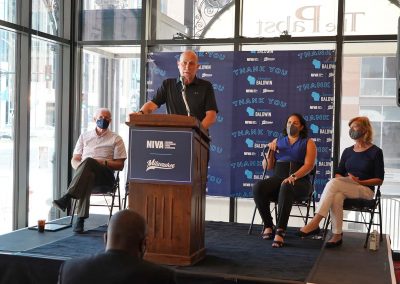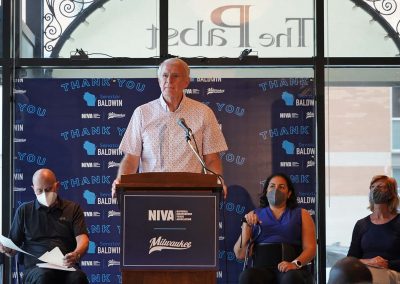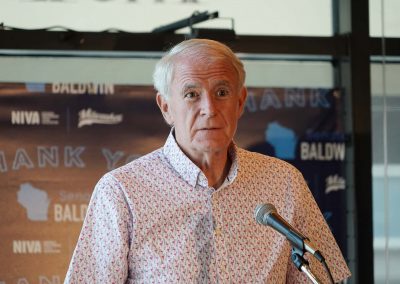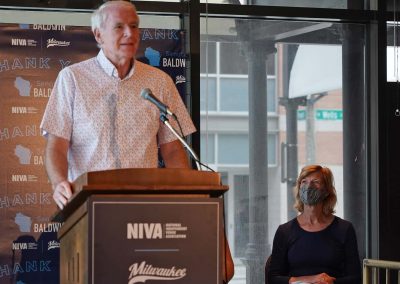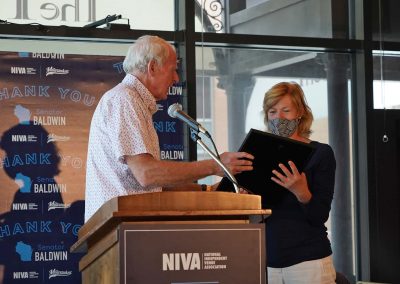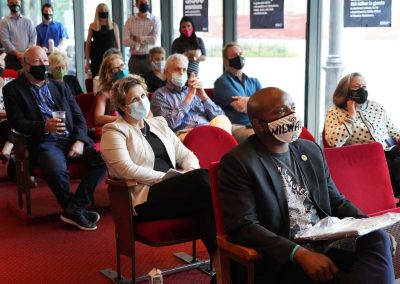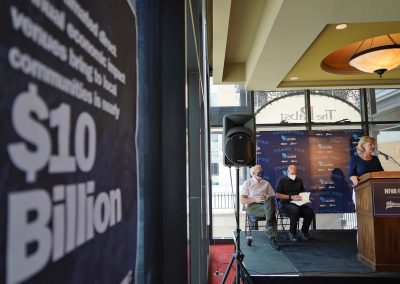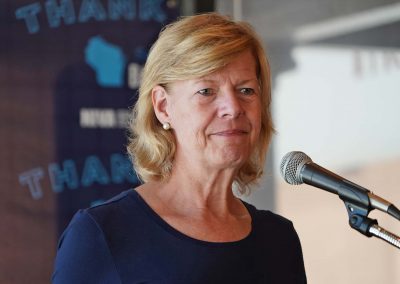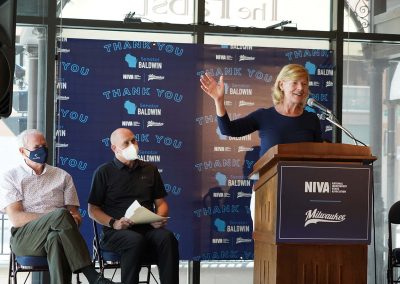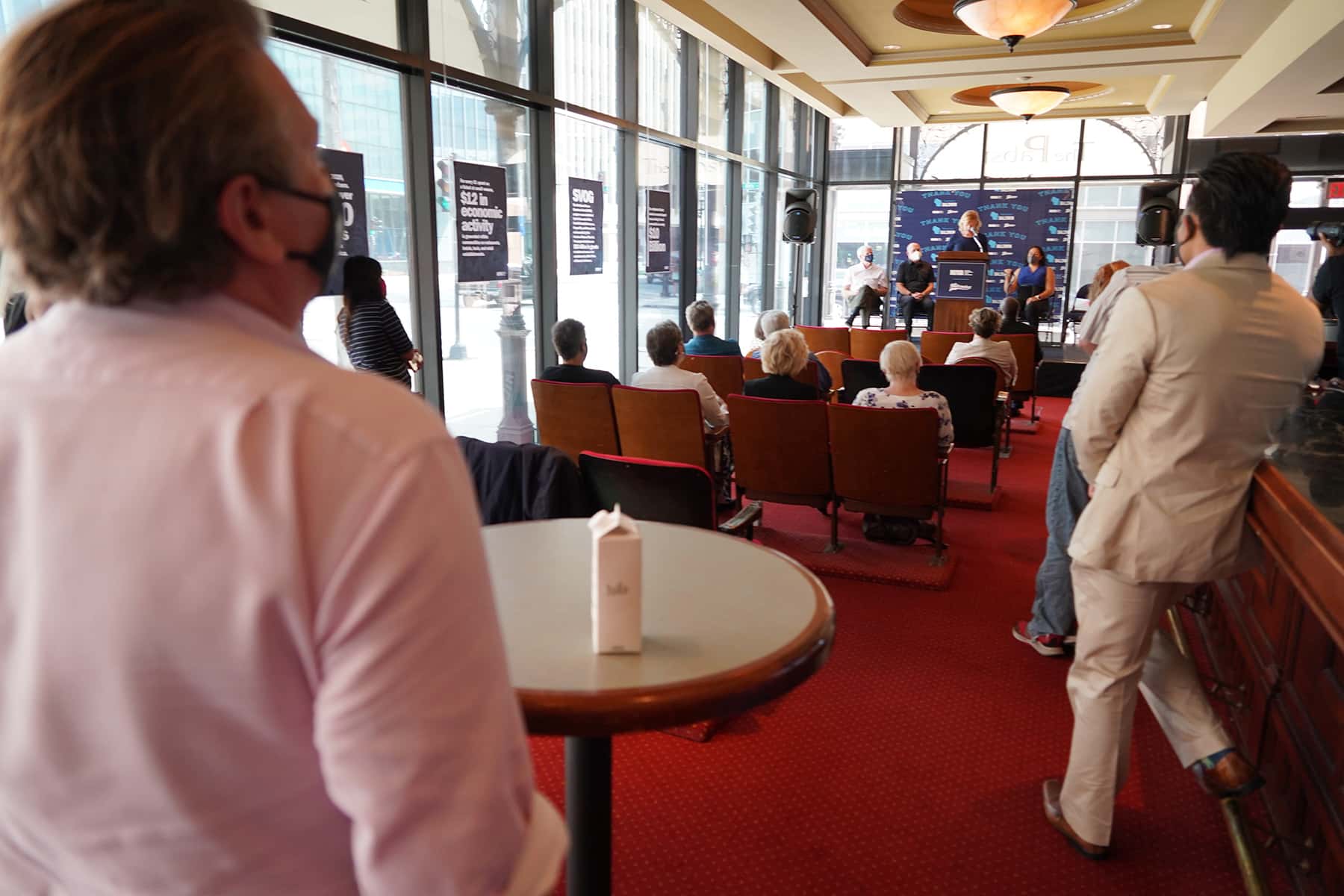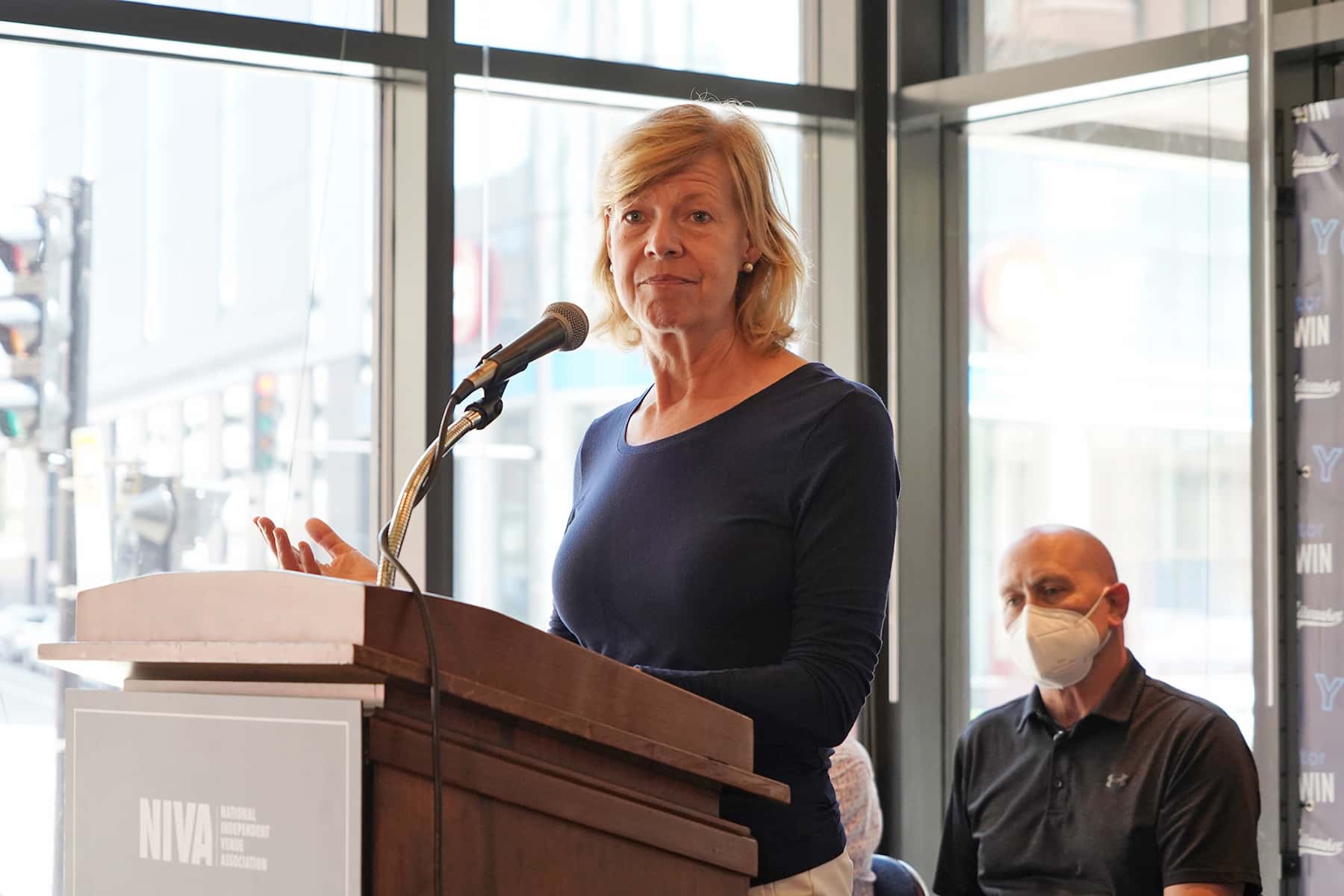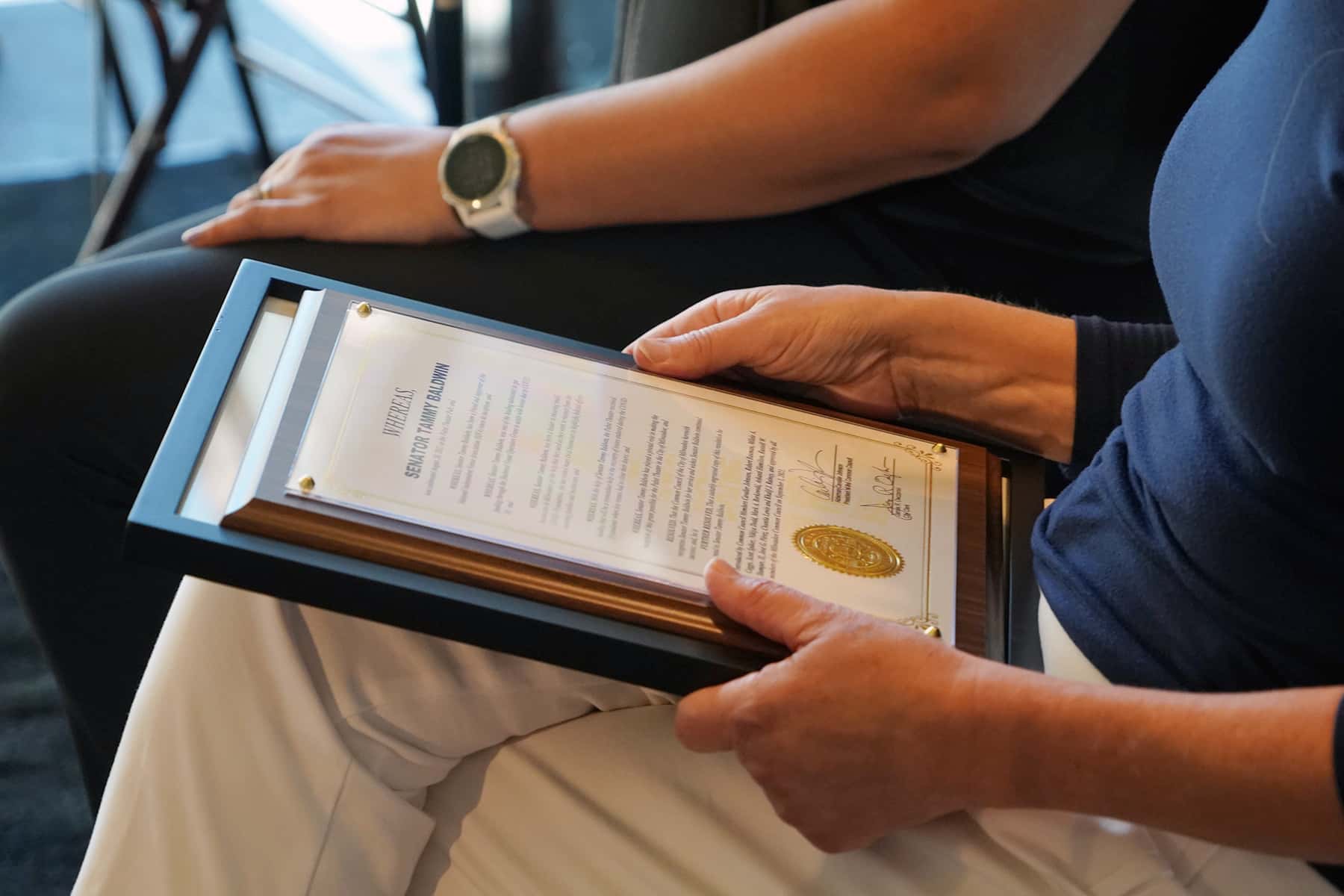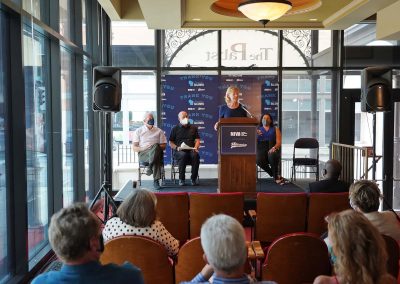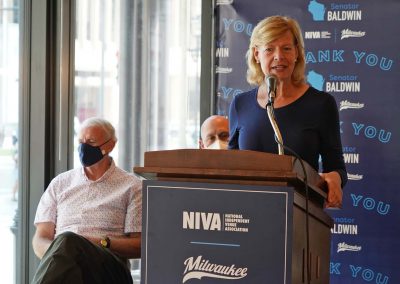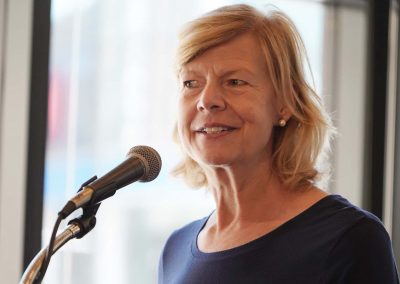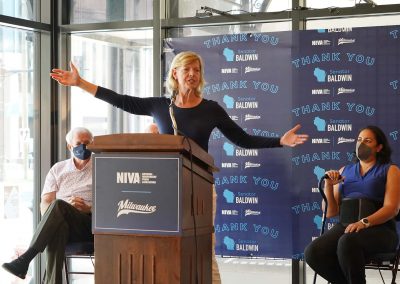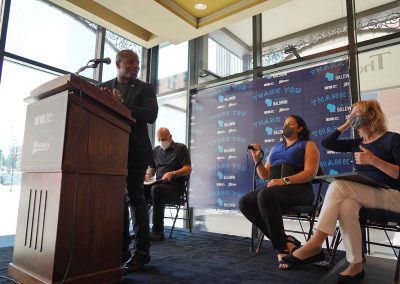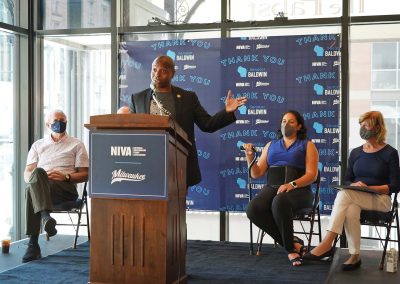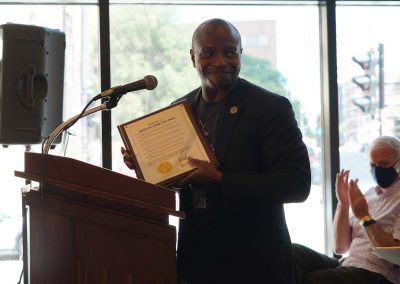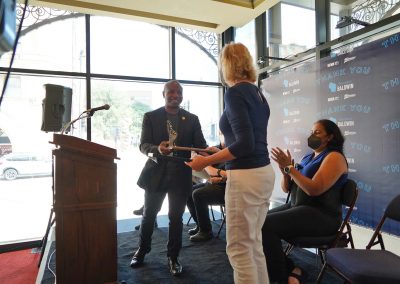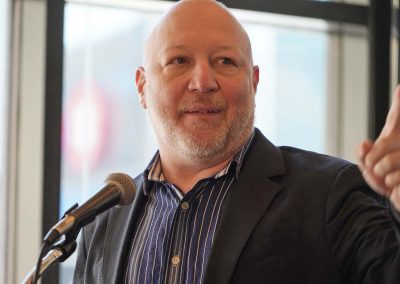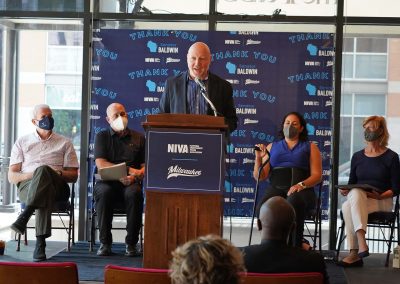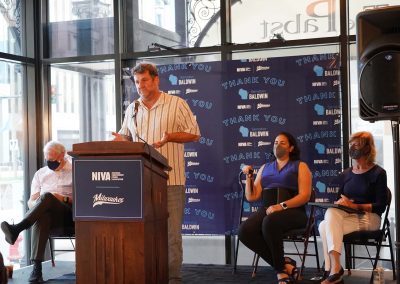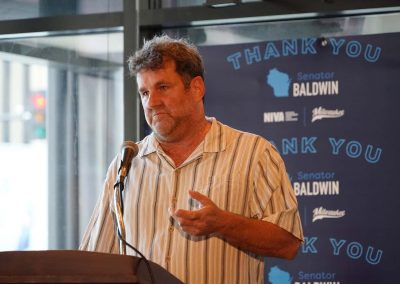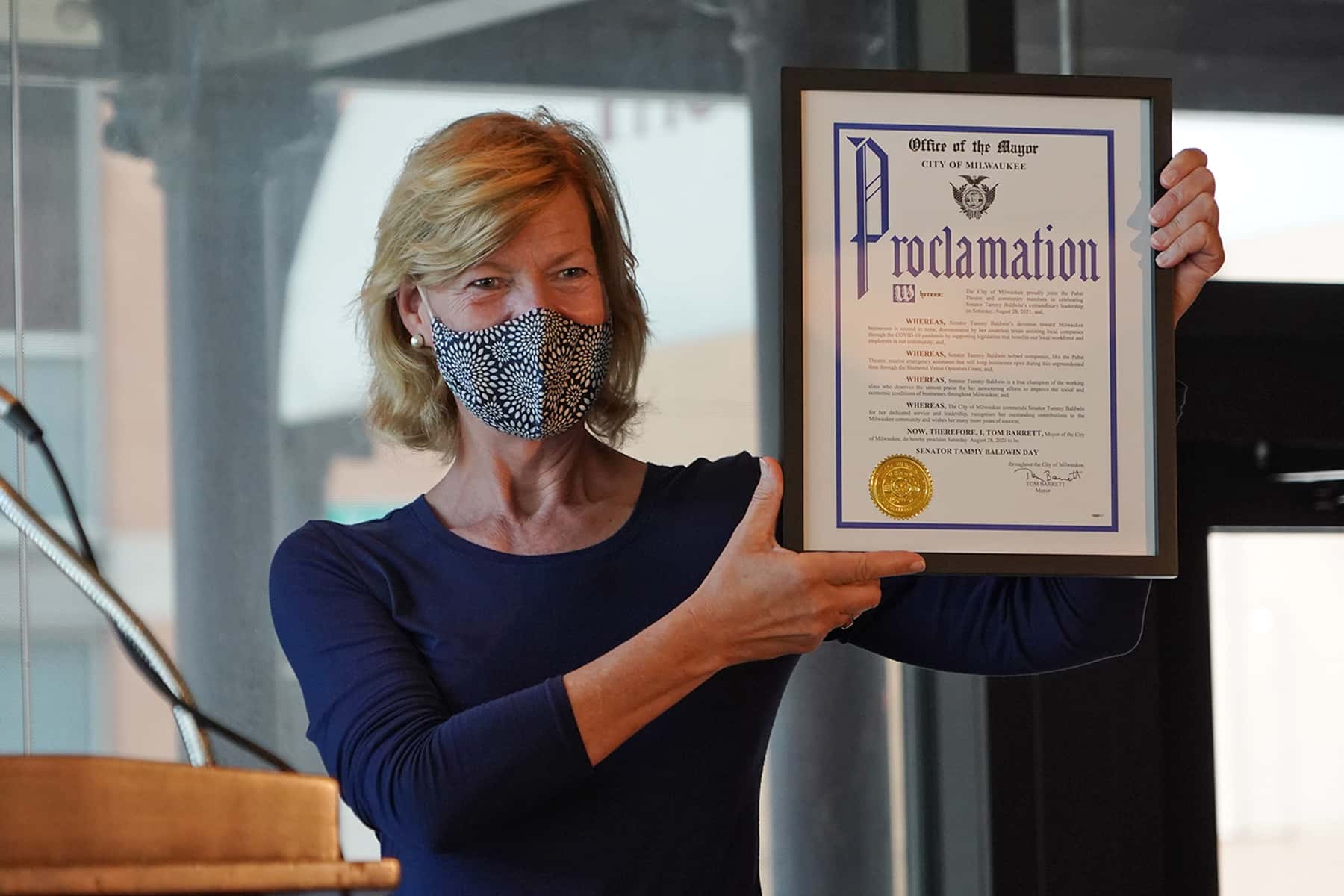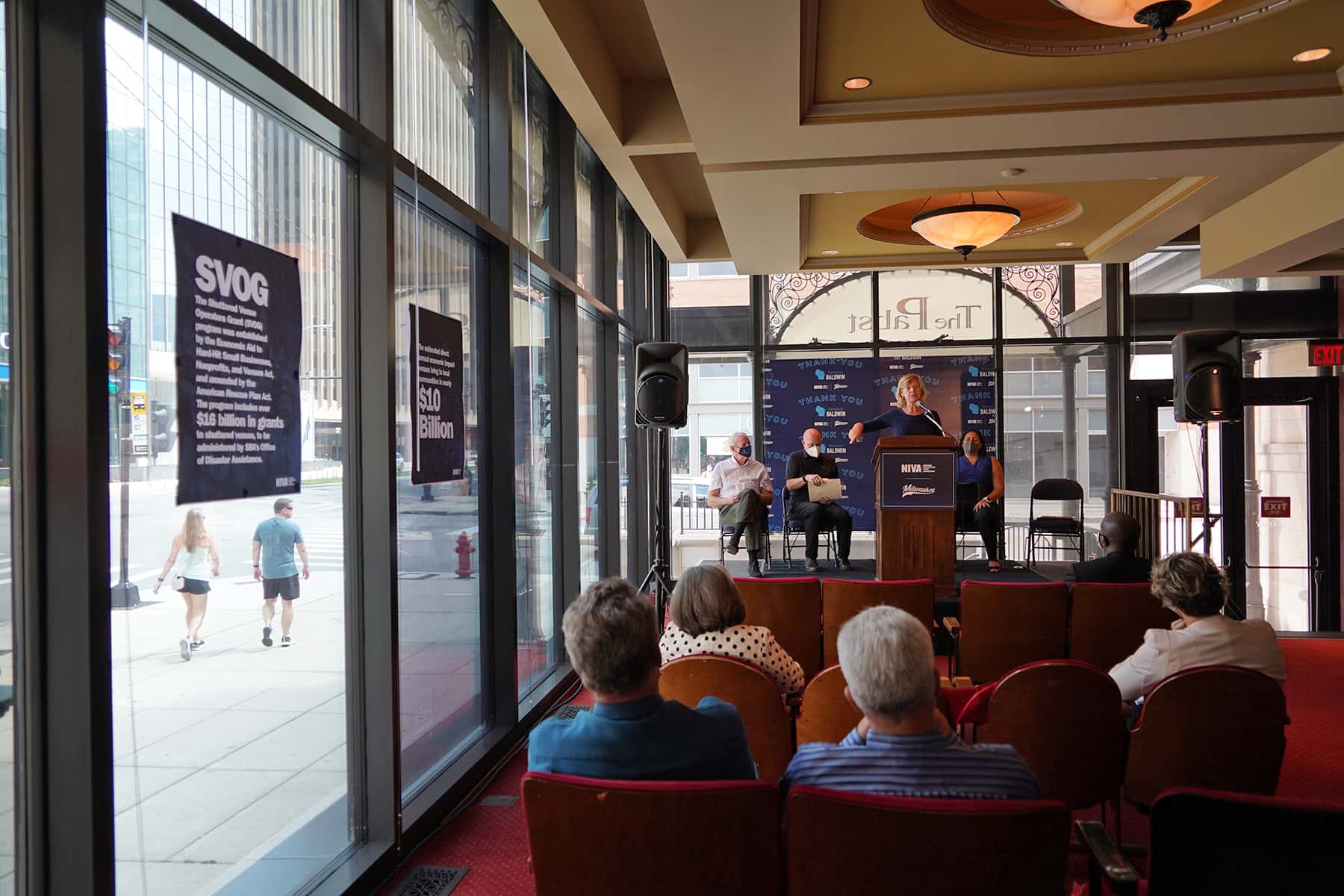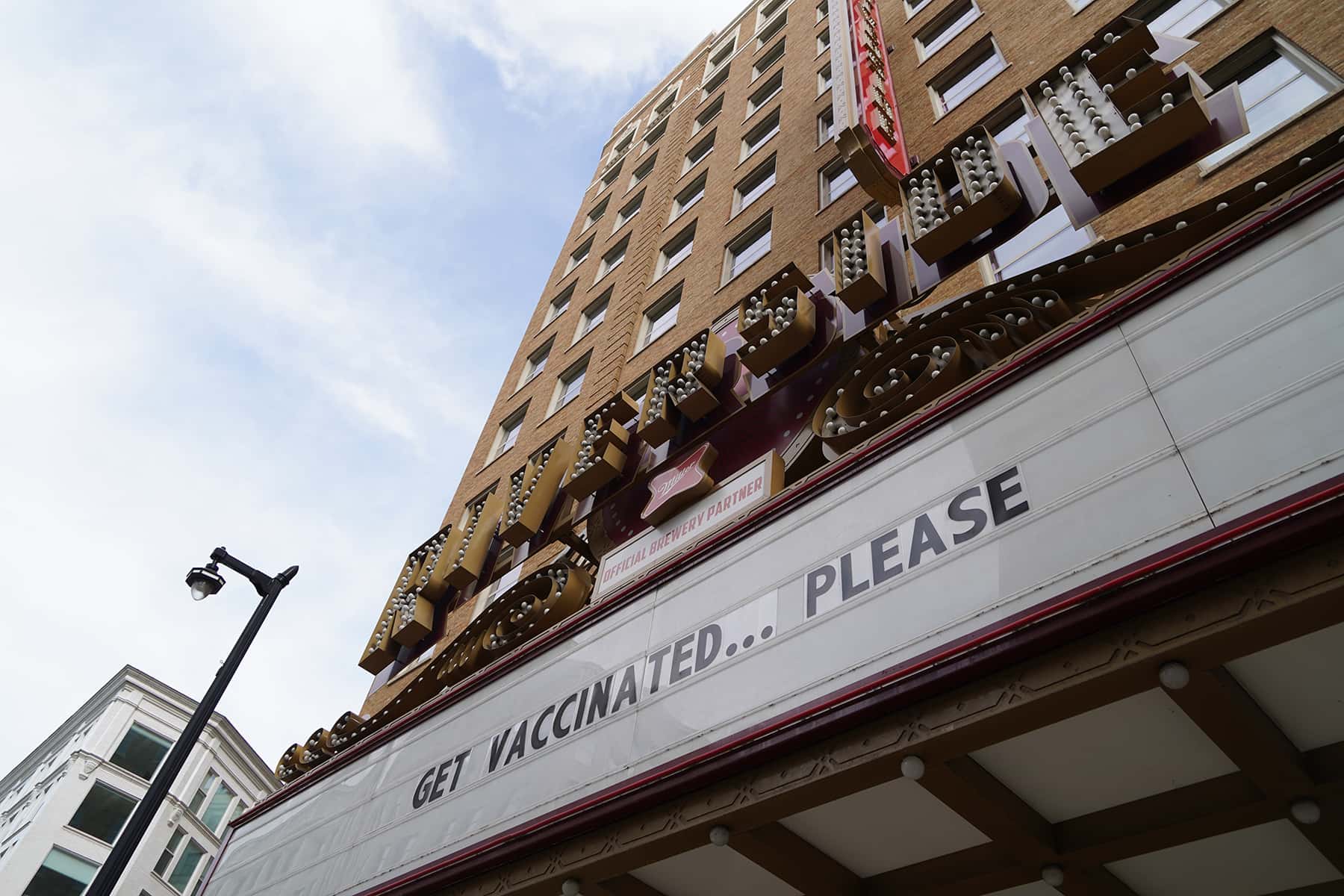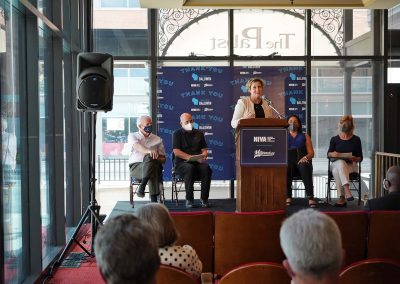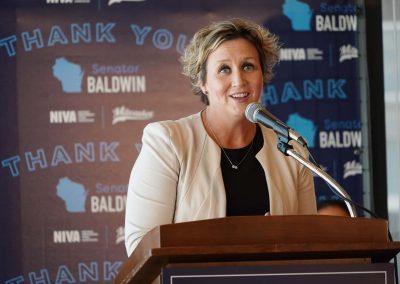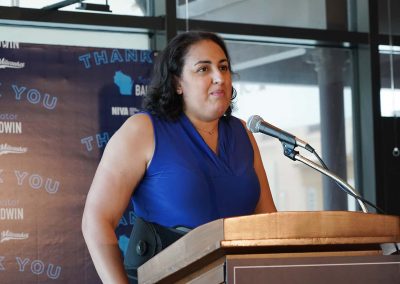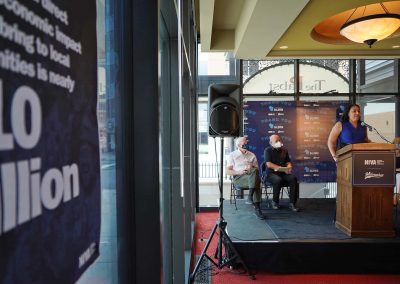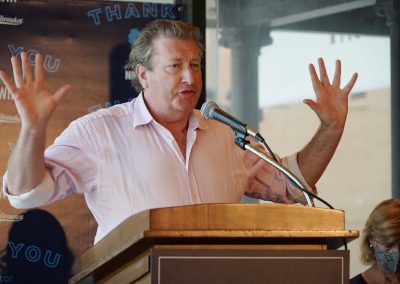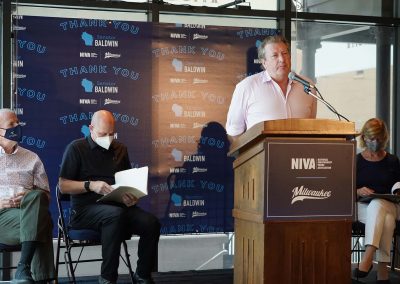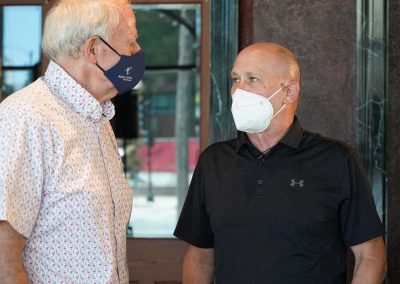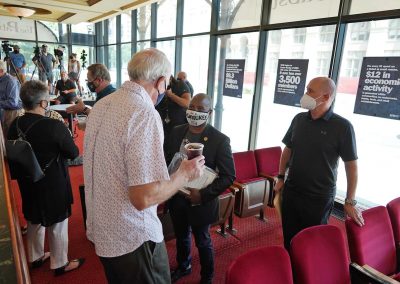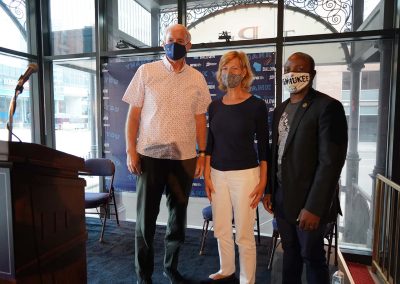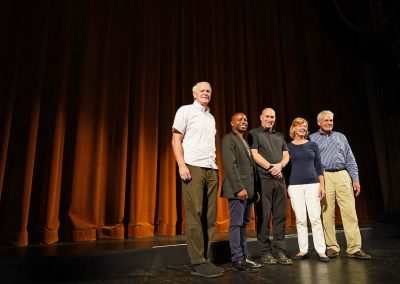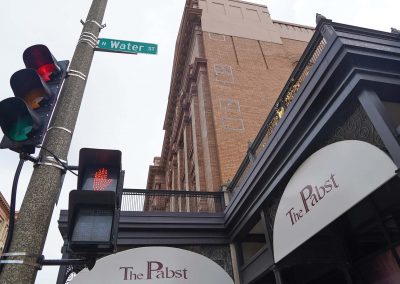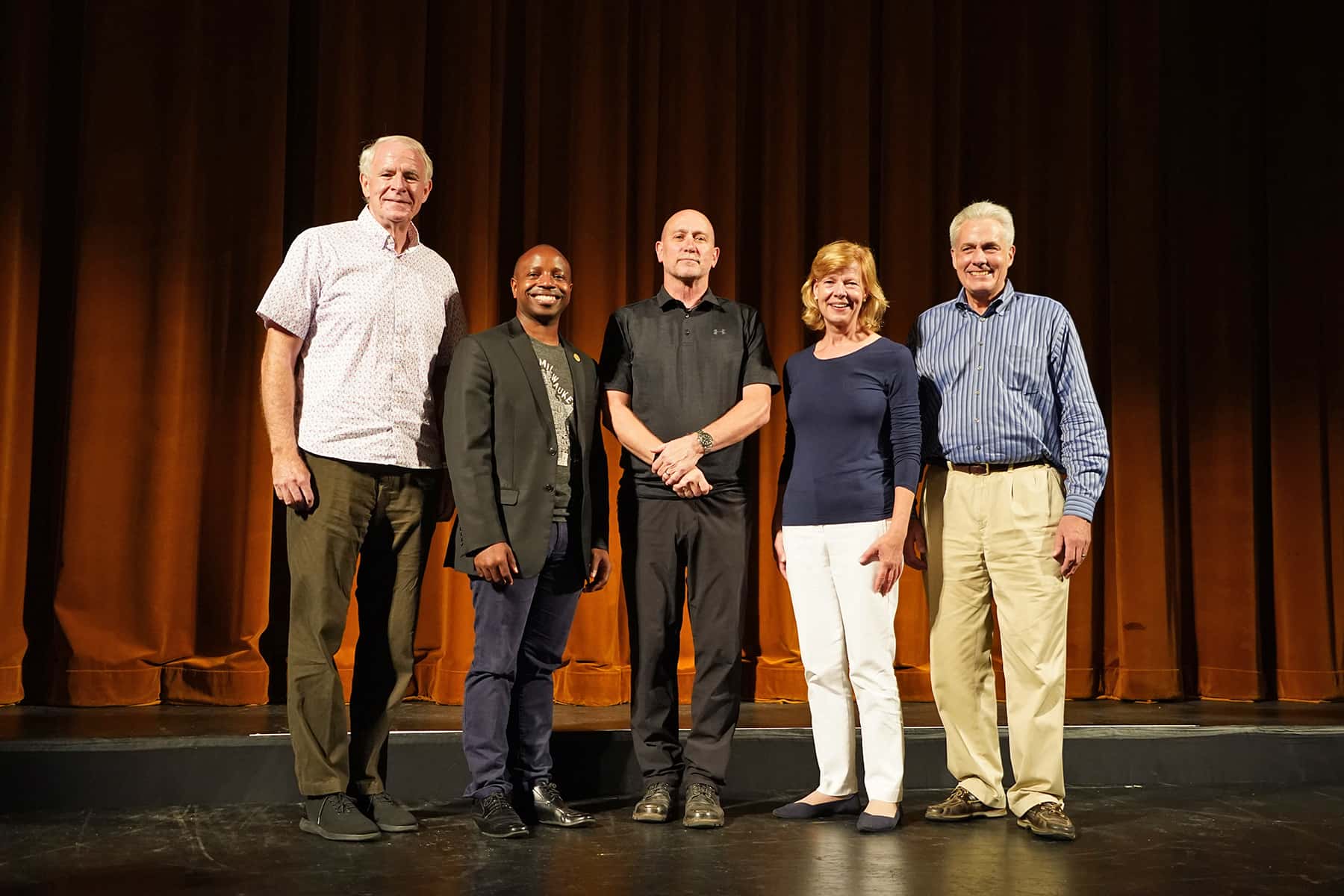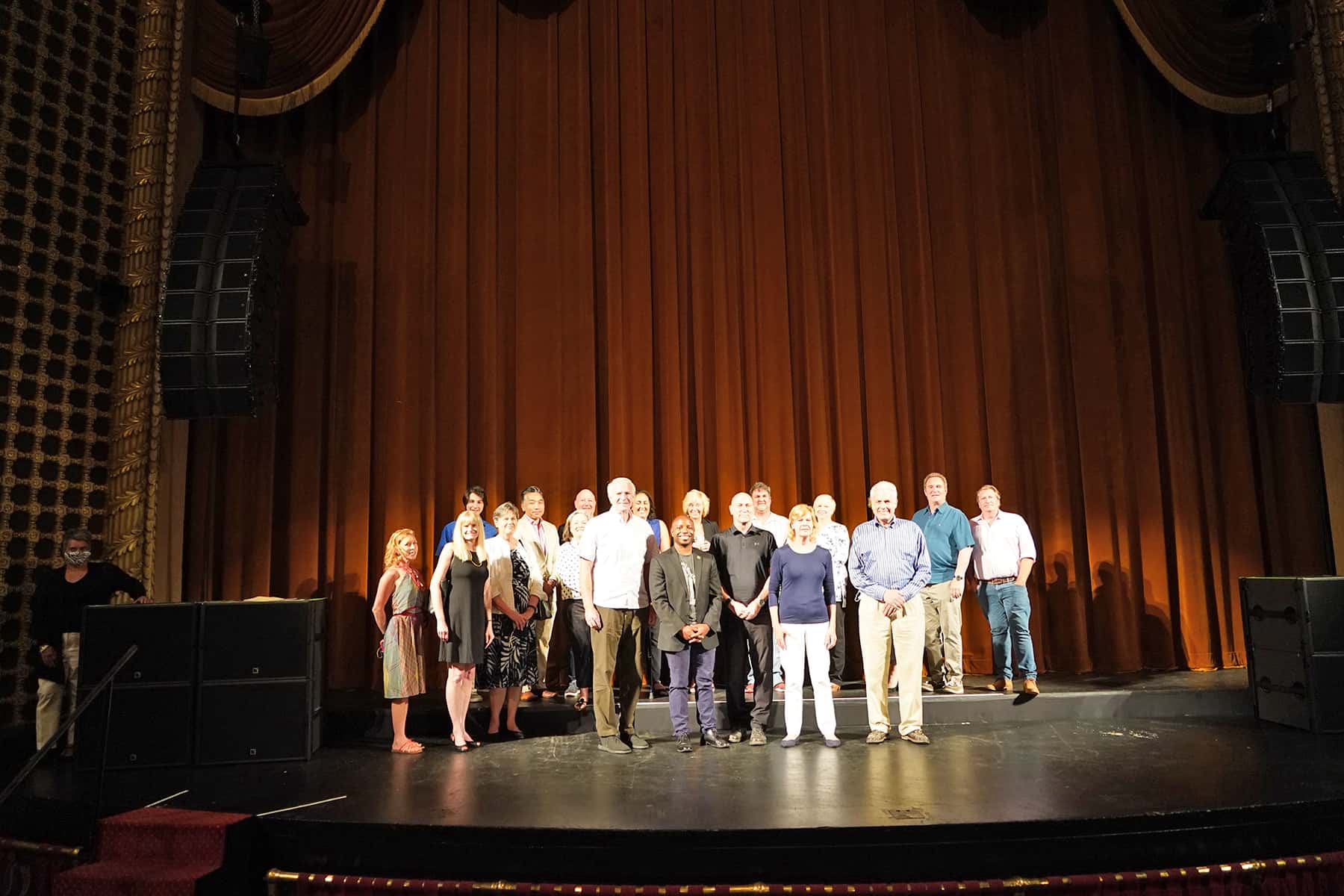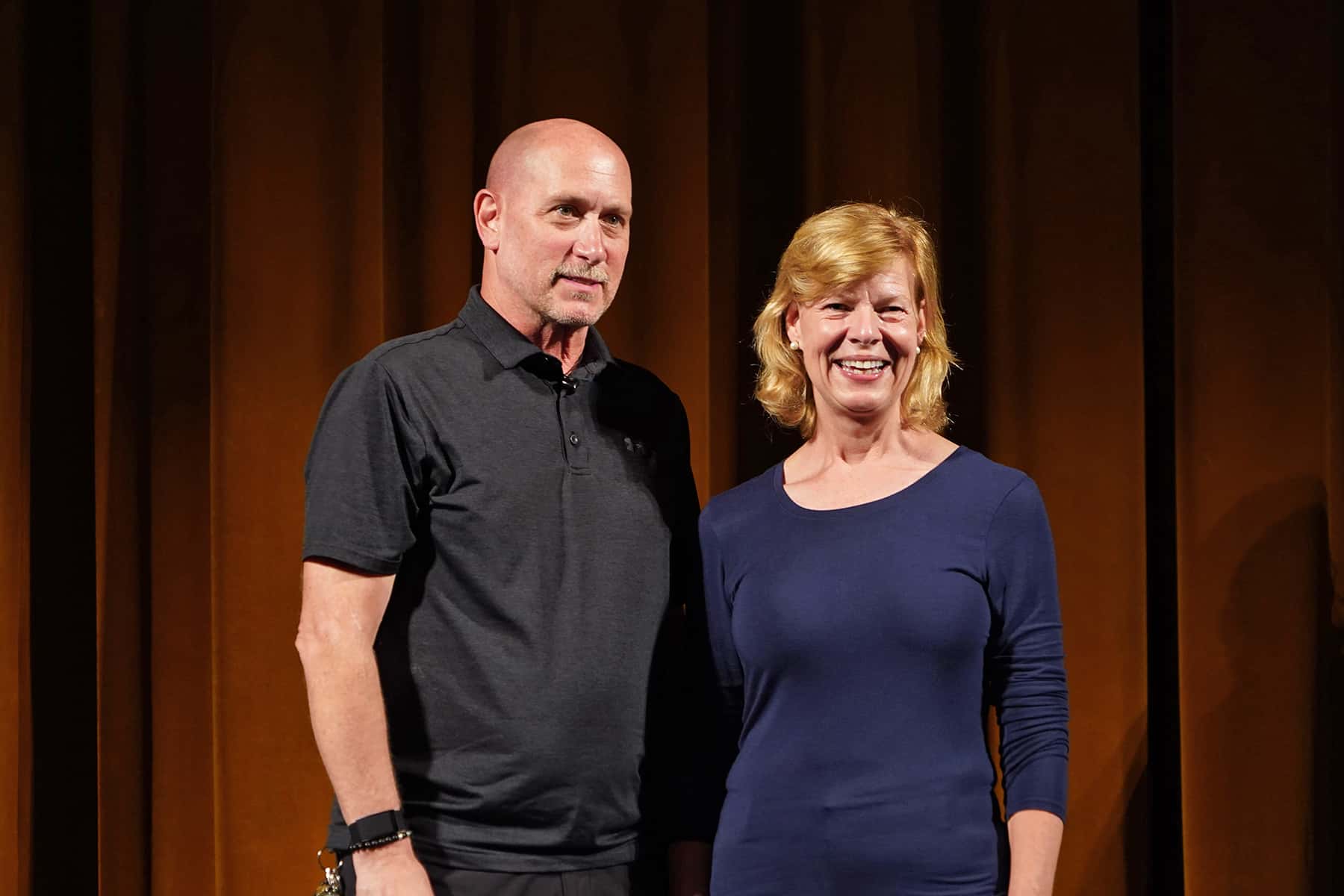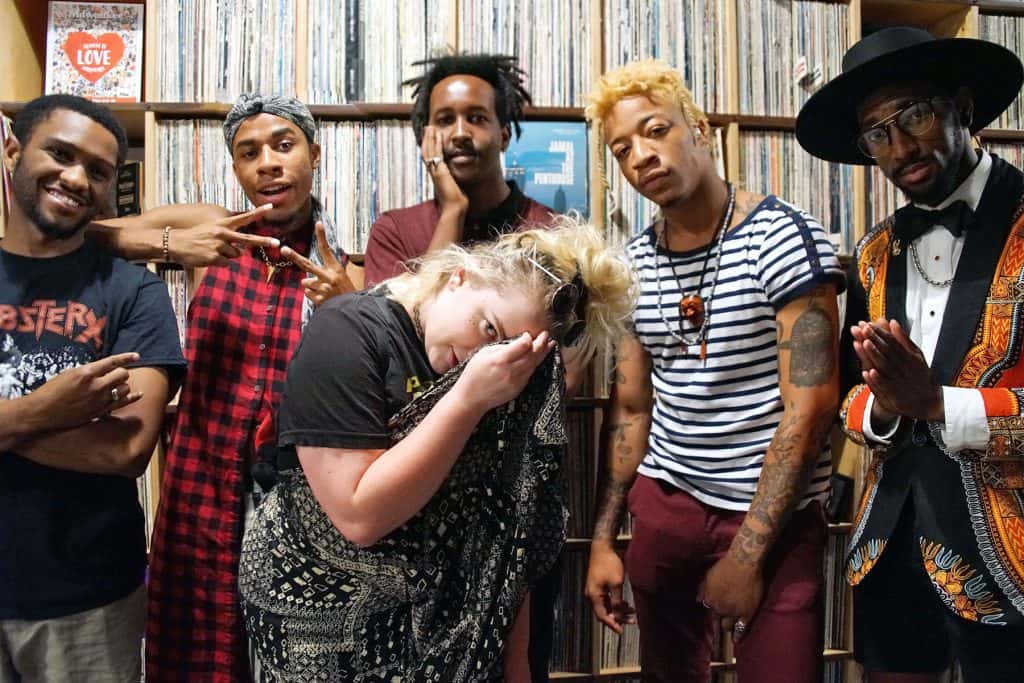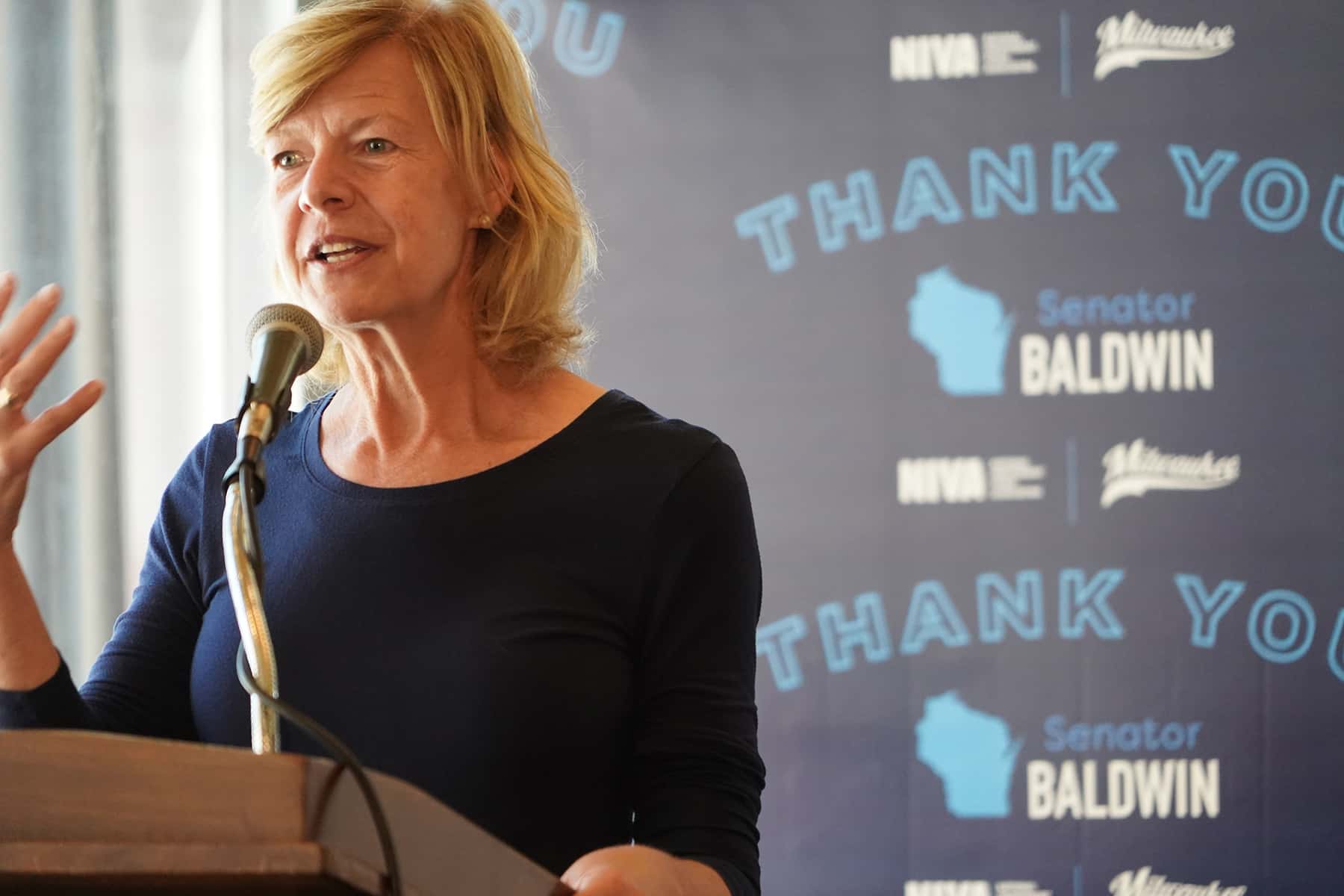
The Pabst Theater Group hosted a private reception on August 28 for U.S. Senator Tammy Baldwin, to express appreciation and gratitude for her support of the National Independent Venue Association (NIVA) and the Shuttered Venue Operator Grant (SVOG).
Senator Baldwin was instrumental in advocating on behalf of local venues and cultural institutions that were significantly impacted by the pandemic, to secure essential funding from SVOG. The reception served as a “thank you” to Senator Baldwin for her help in keeping Milwaukee’s arts community alive through the prolonged health crisis.
The economic issue was particularly important to the Senator from her own personal experience. Her grandmother had assisted the University of Wisconsin-Madison’s costume prop department as a seamstress.
“I grew up in a costume lab during kindergarten and the first grade,” said Senator Baldwin. “I spent a lot of hours in that costume lab, and it taught me at an early age how essential our performing arts – and all arts – are to our culture and our society.”
SVOG allowed venues like the Pabst Theater to continue operating, during the challenging days when social distancing prevented public gatherings. Many business leaders believe that Senator Baldwin’s support for NIVA was a key aspect in getting funding from SVOG for local venues and cultural institutions. As part of the coronavirus relief package passed in December 2020, Congress directed $16 billion in grant funding to the concert halls and theaters that were forced to close due to COVID-19.
“It is an industry that is dependent on people coming out of their homes and attending concerts, or going to plays, or going to musicals,” said Mayor Tom Barrett. “To have that all disappear meant that literally tens and thousands of people lost their jobs. They lost their livelihood.”
When industries like banking and manufacturing have taken economic hits, Congress had a previously established habit for how to “bail out” those poorly managed businesses. But the creative arts and live entertainment industries had no political lobby to get them any assistance for just surviving the catastrophic impact that COVID-19 had brought. The pandemic was a natural disaster and they needed a lifeline to keep their businesses afloat. According to NIVA, 90 percent of its members would have been forced to close their doors if they could not get meaningful support from Congress.
“We started the National Independent Venue Association with just one simple goal. And that was to save our industry,” said Gary Witt, President and CEO of the Pabst Theater Group.
Officially organized on the Easter Sunday of April 12 as the pandemic spread across America, NIVA’s strategy was an elaborate grassroots advocacy campaign powered by thousands of music venue owners. Their combined experience as promoters proved to be effective in political organizing and lobbying. As a result, meetings were held with representatives of every U.S. congressional district.
NIVA worked with Congress to pass one of three bills to support independent venues: Entertainment New Credit Opportunity for Relief & Economic Sustainability (ENCORES) Act, Save Our Stages Act and the Restart Act. Wisconsin’s effort was led by Gary Witt.
“This group of artists never had an affiliation with each other before, and had never asked the government for anything. But we had no choice. We had to advocate for ourselves and develop political leverage to get help.” added Witt. “It was amazing and inspirational to see people tell their legislators that they didn’t want to lose independent concert venues. They realized how important we are to them as people, and how important we are to the economy in every city that each of our independent concert promoters are located.”
The Pabst Theater hosts over 700 shows a year, and generates around $250 million in economic activity for Milwaukee. March 11 of 2020 was the last show that the venue could offer for the next 17 months. Part of the grant funding helped the organization recoup some of the losses experienced when public venues were forced to close. It also allowed them to come back at full employment and make needed repairs to the historic building.
Many of the business leaders who attended the reception spoke about the uncertainty they felt at the beginning of the pandemic, and the anxiety that followed from all the financial obstacles they were forced to overcome. Those who expressed their appreciation for Senator Baldwin’s help included Ellen Censky, President and CEO of Milwaukee Public Museum; Mark Clements, Art Director for the Milwaukee Repertory Theater; Kendra Ingram, President and CEO of the Marcus Center for Performing Arts; Peter Jest, Owner of Shank Hall; Mark Niehaus, President and CEO of the Milwaukee Symphony Orchestra; and Sarah Smith Pancheri, COO and VP of Marketing for Milwaukee World Festival and Summerfest.
Mayor Barrett and Common Council President Cavalier Johnson both proclaimed August 28 as “Senator Tammy Baldwin Day” in appreciation of her “devotion toward Milwaukee businesses,” and as “a true champion of the working class who deserves the utmost praise for her unwavering efforts to improve the social and economic conditions of businesses throughout Milwaukee.”
© Photo
Lee Matz

